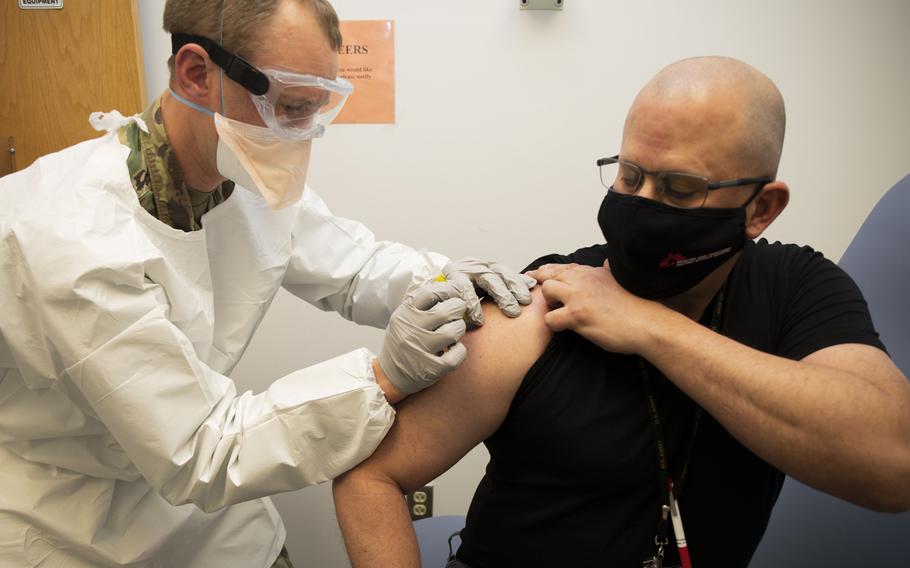
Capt. Aaron Sanborn injects Francis Holinaty on the first day of clinical testing of the Walter Reed Army Institute of Research's spike ferritin nanoparticle (SpFN) vaccine. Pre-clinical studies have found that SpFN induces highly potent antibody responses against the virus that causes COVID-19 and three major variants. (Mike Walters/WRAIR)
The U.S. Army this week began testing a vaccine that could protect against “major variants” and new strains of the coronavirus, one of the vaccine's developers said.
“We have designed and positioned this platform as the next generation vaccine, one that paves the way for a universal vaccine to protect against not only the current virus, but also counter future variants, stopping them in their tracks before they can cause another pandemic,” Kayvon Modjarrad, director of Walter Reed’s emerging infectious diseases branch, said in a statement.
Clinical testing of the vaccine began Tuesday at the Walter Reed Army Institute of Research.
The Army first started working on the vaccine in January 2020, weeks before the World Health Organization expressed alarm over the “levels of spread and severity" of the virus and declared COVID-19 to be a pandemic.
The Walter Reed team is concerned about the emergence of new coronaviruses in human populations, which Modjarrad said was “a threat that has been accelerating in recent years.”
“That’s why we need a vaccine like this: one that has potential to protect broadly and proactively against multiple coronavirus species and strains,” he said.
Modjarrad co-invented the vaccine, known as SpFN, with Walter Reed Army Institute of Research colleague Gordon Joyce.
Pre-clinical studies have found that SpFN “induces highly potent and broad neutralizing antibody responses against the virus that causes COVID-19” and three major variants, the statement said.
The current phase of testing will involve 72 healthy adult volunteers aged 18-55.
Several coronavirus vaccines are available around the world and hundreds more are in development. The BioNTech-Pfizer, Johnson & Johnson and Moderna vaccines are the most used in the U.S. and by the military.
vandiver.john@stripes.com Twitter: @john_vandiver